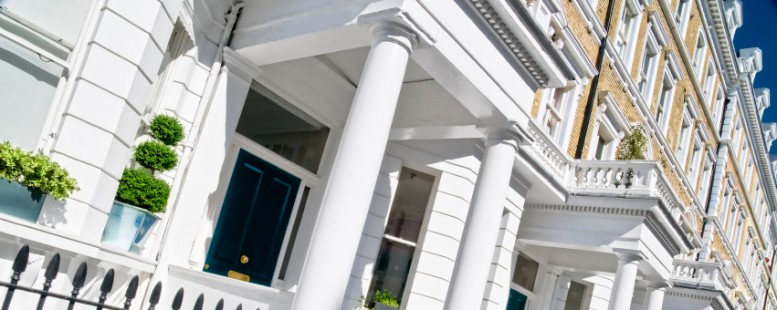Our Opinion: 2016
Buy To Let’s worrying outlook

Buying a property to rent out has long been a popular investment for both Britons as well as foreign investments, wanting to benefit from rises in the UK’s property market. The additional demand for property purely for investment has driven up prices in recent years and, in some parts of London, in particular, blocks of apartments with nobody living in them – built purely to meet demand of foreign (usually Asian) buyers.
Last year, Chancellor George Osborne announced wholesale changes to taxation of landlords in an attempt to reduce demand and drive down prices. Investing in buy-to-let property is set to get even more difficult. In a bid to cool the overheating property market (last year, buy-to-let lending rose to its highest level since 2007), the Bank of England plans to force banks to tighten lending criteria, forcing buyers to put down far larger deposits.
Most buy-to-let landlords have to raise a deposit of roughly 25%. Banks assume that borrowers pay interest at 5%, and that their rental income needs to be 25% higher than their mortgage payments. So if the average house costs £202,436 and tenants pay an average rent of £764 a month, the typical deposit is £55,741 (the minimum needed to reduce the size of the mortgage to a level where monthly rental payments will cover it comfortably). However, in March, the Bank of England recommended that interest-rate assumptions should rise from 4.99% to at least 5.5%. If confirmed, which could happen as soon as this autumn, and this change would push the required deposit significantly higher.
One of Britain’s biggest lenders, Nationwide, has already tightened up its criteria, demanding that rental income be at least 45% higher than the mortgage. That would mean putting down £83,349 (including stamp duty) on the average house – a huge 41.2% of the total purchase price. Other lenders are expected to follow suit, and if the Bank of England does tighten its rules, Nationwide would have to raise its requirements even further.
The increase in demand for investment property, rather than a home, has even led to one town in England to ban the building of second homes. More than 83% of residents in St Ives, Cornwall, backed a new “neighbourhood plan” stipulating that planning permission for new homes will only be granted for those reserved for full-time residents. Holiday homes already account for more than a 25% of and residents are also concerned about affordability – the average house price is around £400,000, according to Rightmove, about 18 times local salaries. A local architects’ firm is taking legal action to challenge the move, but it’s not the first such decision – Lynton and Lynmouth in Devon recently voted for a similar scheme.
To add further pressure to the sector, the government is recruiting experts to track down property developers who use offshore companies to avoid paying tax on profits generated from developing UK property, ahead of new laws planned for later this year. The new task force has already identified around 100 projects where developers may be using offshore headquarters to avoid tax. The Treasury predicts it could raise nearly £2.3bn from this crackdown by 2020.
The team may not have to go far to find targets. According to the Land Registry, one of HMRC’s most prestigious offices – Custom House – is owned by a company based in Bermuda, “that was set up to legally avoid tax of £170m on a government deal”, according to The Sunday Times. The Grade I-listed building is among more than 490 government offices (around a tenth of the central government’s estate) ultimately owned by offshore companies.
All this attention means that London-focused Foxtons estate agent saw sales volumes fall in the first half – partly because “higher stamp duty has led many buyers and sellers to sit on their hands”.
This gives a clue as to what’s really the biggest threat to the UK housing market – not Brexit at all, but the recent changes to the rules on stamp duty and taxing landlords. Between 2017 and 2021, landlords will gradually lose the ability to write off mortgage interest costs against their income.
Deutsche Bank concludes that the resulting squeeze on buy-to-let profits could result in London house prices falling sharply. On the one hand, buying to let will become less attractive, so demand will fall. On the other, supply will rise as some landlords are forced to sell by negative cash-flow problems (in other words, their rent won’t cover their costs any more as the tax on their profits increases).
This would have a surprisingly large impact on the market, because buy-to-let now accounts for around a third of all London residential property sales that require a mortgage. A fall back to 2012/2013 levels would imply a 20% fall in prices from here.
The post-Brexit weaker Pound might boost demand and some opportunistic overseas investors are scenting bargains.
However, there are many warning sign to those considering the amateur landlord route – the government clearly has the sector in its sights and it’s only going to get tougher. Investments elsewhere look far more attractive.
5th July 2016
